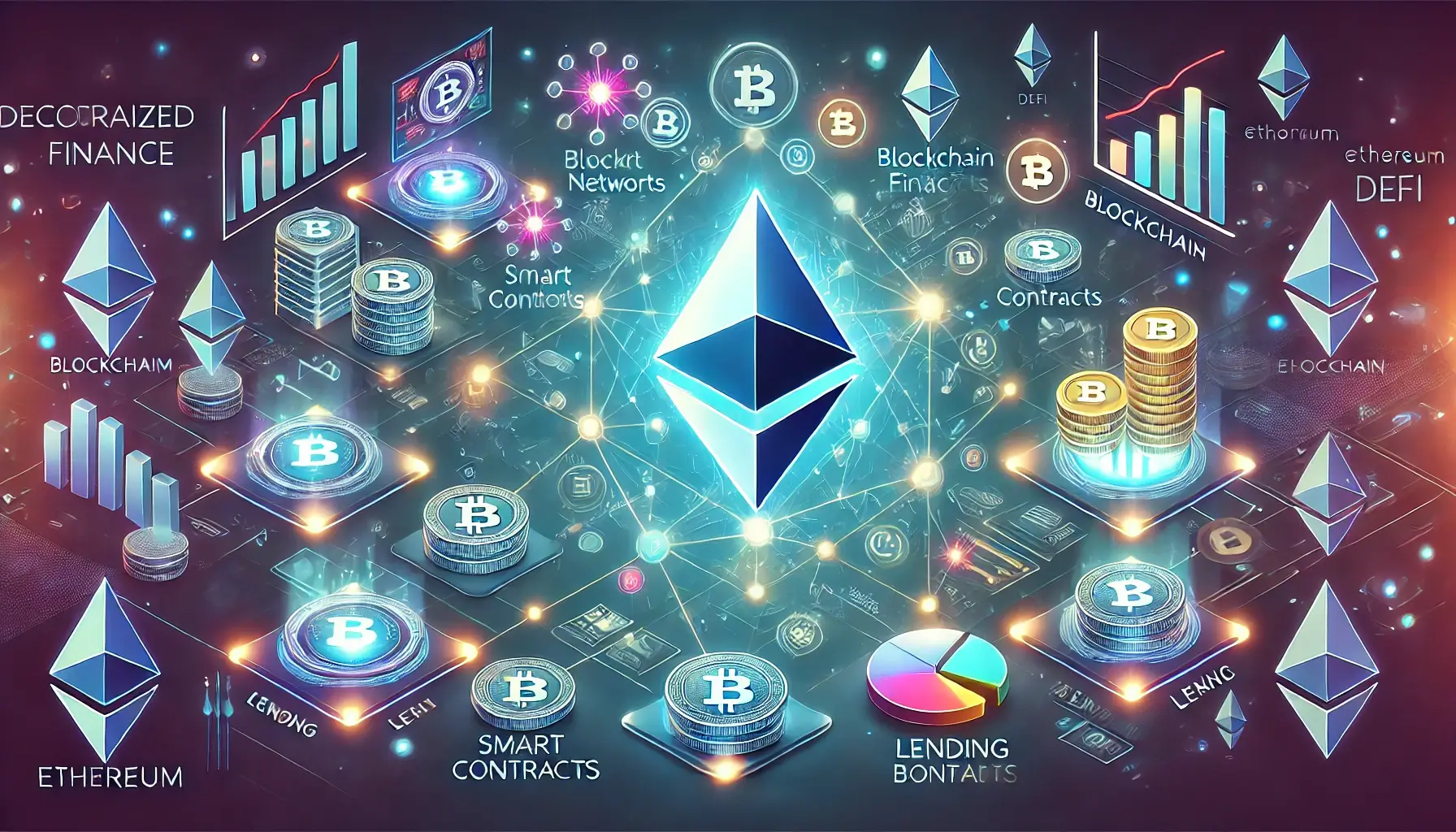What is DeFi? Decentralized Finance Explained
Decentralized Finance, or DeFi, is a groundbreaking innovation in the blockchain world. It represents a shift from centralized financial systems, like banks and institutions, to decentralized networks that operate transparently and without intermediaries. But what exactly is DeFi, and how does it work? Let’s explore the meaning of DeFi, its benefits, and why it’s changing the way we think about finance.
Understanding the Meaning of DeFi
To understand what is DeFi and its significance, we need to start with the basics. DeFi, short for Decentralized Finance, refers to a set of financial tools and services built on blockchain technology. These tools eliminate the need for middlemen, such as banks, by using smart contracts—self-executing agreements that run on decentralized networks like Ethereum.
This decentralization allows DeFi to provide financial services that are:
- Accessible: Available to anyone with an internet connection.
- Transparent: Transactions and operations are recorded on public blockchains.
- Permissionless: Users don’t need approval from banks or institutions to participate.
With these features, it’s clear that Decentralized Finance is reshaping traditional finance as we know it.
How Does Defi Work?
Now that we’ve covered what is DeFi, let’s dive into its mechanics. DeFi relies on blockchain technology and smart contracts to execute financial operations. Here’s how it works step by step:
- Smart Contracts: These are programs on the blockchain that automate tasks such as lending, borrowing, or trading.
- Blockchain Networks: DeFi applications run on decentralized platforms like Ethereum, ensuring security and transparency.
- Cryptocurrencies and Tokens: These digital assets power DeFi systems, acting as collateral or a medium of exchange.
For instance, imagine lending money in a traditional bank. The bank acts as an intermediary, taking fees and dictating terms. In contrast, Decentralized Finance uses smart contracts to directly connect lenders and borrowers, cutting costs and delays.
Top Applications of Decentralized Finance
When asking, “What is DeFi?” it’s important to understand its wide range of applications. Here are some popular examples:
- Decentralized Exchanges (DEXs): Platforms like Binance allow users to trade cryptocurrencies directly, without centralized oversight.
- Lending and Borrowing: Protocols like Pionex let users earn interest on crypto assets or borrow funds without credit checks.
- Yield Farming: Users can earn rewards by staking or providing liquidity to DeFi pools.
- Stablecoins: Cryptocurrencies like Pionex maintain stable values, making them useful for transactions in volatile markets.
- Insurance: Decentralized Finance platforms like pionex Mutual offer insurance services on blockchain assets.
These applications showcase how DeFi is revolutionizing traditional financial systems with innovative solutions.
The Benefits of Decentralized Finance
One of the most compelling reasons to understand what is DeFi is the significant benefits it offers:
- Financial Inclusion: DeFi enables access to financial services for millions of unbanked individuals globally.
- Lower Costs: By eliminating intermediaries, DeFi significantly reduces transaction fees.
- Transparency: Every transaction is recorded on the blockchain, creating a verifiable public ledger.
- Control: Users have full ownership of their assets, unlike traditional systems where banks retain control.
Additionally, Decentralized Finance fosters innovation by enabling the creation of new financial products and services.
Challenges of Decentralized Finance
While Decentralized Finance offers numerous benefits, it also comes with risks and challenges. Some of the most common include:
- Security Concerns: Smart contracts, though powerful, can have vulnerabilities that hackers exploit.
- Volatility: Many cryptocurrencies used in DeFi are subject to price fluctuations.
- Regulatory Uncertainty: Governments worldwide are still grappling with how to regulate DeFi, which could affect its growth.
Despite these challenges, understanding what is DeFi and its potential can help users navigate the space wisely.
Conclusion: Why Defi Matters
In conclusion, Decentralized Finance, or DeFi, is revolutionizing how we interact with money. By leveraging blockchain technology and removing intermediaries, DeFi creates a more inclusive, transparent, and efficient financial ecosystem. For anyone asking, “What is DeFi?” the answer is clear: it’s the future of finance, empowering individuals and communities worldwide.
If you’re curious to explore the latest developments in Decentralized Finance, stay updated with our in-depth guides and news on DeFiCoinHub!

